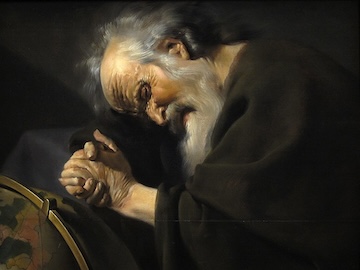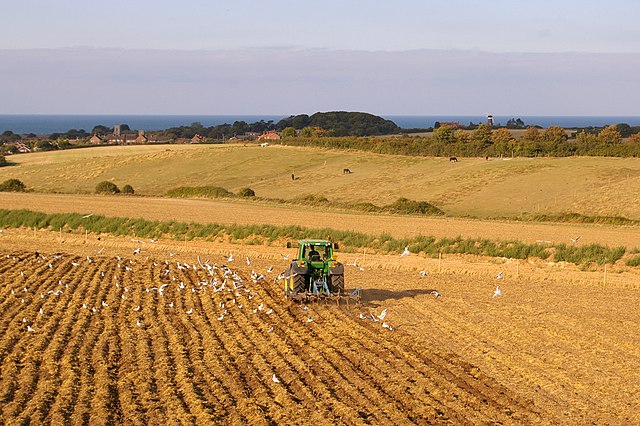See Also Subjects Authors Years
This page is an index to all 1643 posts in The Copy Book.
The Copy Book is an ever-growing library of short passages from history and literature, intended for practice in paraphrase and précis or simply for reading pleasure. They include brief summaries and eyewitness accounts of major events in our national history, and extracts from fables, poetry, plays, novels, political speeches and biography. Many were included by NL Clay in his anthologies of ‘straightforward English’.
You can keep up-to-date with new posts, and discover old posts you may have missed, with the Clay Lane Blog, where you will also find a selection of word games and exercises in grammar and composition.
The posts are currently listed most recent first. Use the buttons below to sort the posts alphabetically, or shuffle the list so you can find posts from right across the collection.
Sort New to Old A to Z Shuffle
1 ★ For Today
The opening of the Bombay to Thane line was the real beginning of British India.
Just twenty-three years after the Liverpool and Manchester Railway hosted the world’s first regular steam-hauled passenger service, British entrepreneurs began running the first trains in India. The ‘Illustrated London News’ described it as an event more important than all Britain’s battles on Indian soil.
Picture: British Library Collection, via Wikimedia Commons. Licence: Public domain.. Source.
Posted February 20 2017
2 ★ For Today
The young Roman Emperor Theophilus backed away from marriage to the formidable Cassiani, but he could not forget her.
Cassiani was a nun of noble birth in the Roman Empire’s capital city, Constantinople, during the 9th century. Her gift for poetry and hymn-writing was widely admired, and the Eastern service-books are littered with her works. The most famous is a Hymn for Wednesday in Holy Week, and thereby hangs quite a tale.
Picture: From the Chronicle of John Skylitzes, via Wikimedia Commons. Licence: Public domain.. Source.
Posted October 26 2017
3
Bishop Eusebius recalls what Constantine told him about the vision that brought him the crown.
It was at the Battle of the Milvian Bridge, on October 28th, 312, that Constantine — encouraged by the British legions — overcame his rival Maxentius and emerged as the sole ruler of the Roman Empire. In this passage, his friend and confidant Eusebius, Bishop of Caesarea, recalls what Constantine told him about his vision before the battle, and the banner that Christ told him to make.
Picture: © Udimu, Wikimedia Commons. Licence: CC BY-SA 3.0.. Source.
Posted February 25
4
Ancient Greek philosopher Aristotle explains what it is that defines a tyranny.
We tend to use the word ‘tyrant’ today with a mental picture of some apoplectic dictator raving and stamping. This is hardly adequate, and it allows much tyranny to pass unnoticed. Aristotle gave us a more carefully drawn word-portrait: of a man (or of men) whose goal is to keep a grip on power by systematically dividing, demeaning and disheartening the public.
Picture: By Roland Vivian Pitchforth (1895-1982), via Wikimedia Commons. Public domain.. Source.
Posted February 25
5
Plutarch argues that it when it comes to strong speech, less is always more.
Plutarch has been discussing at length (the incongruity has to be passed over) the annoyance of people who talk too much. The insatiable prattlers, he says, should consider how we admire men of few words; and he gave some examples, from the Spartans, who rebuffed Philip of Macedon, to the god Apollo, who would rather be obscure than wordy.
Picture: By Johannes Moreelse (?1602-1634), Wikimedia Commons. Public domain.. Source.
Posted February 24
6
Solomon recommends taking lessons from one of God’s smallest but most hard-working creatures.
The Book of Proverbs is traditionally ascribed to Solomon, son of King David, and himself King of Israel early in the tenth century BC, though as with the Psalms some of it was compiled from the works of other authors, and some is of later date. The following passage was translated into English for the Authorized Version of 1611, and the result is quite masterly.
Picture: © Tim Felce, Wikimedia Commons. CC BY-SA 2.0.. Source.
Posted February 20
7
Erasmus Darwin imagines how steam power will change the world.
Erasmus Darwin, father of pioneering zoologist Charles Darwin, wrote these lines in his poem The Botanic Garden, published in 1789 but written as many as twenty years earlier, when steam-powered vehicles were still decades away.
Picture: By Clément Ader, photo © Roby, Wikimedia Commons. CC BY-SA 2.0.. Source.
Posted February 16
8
Richard Cobden called on Parliament to support small, family-owned farms.
In 1864, Richard Cobden MP published an open letter arguing that small-holdings owned by the farmer, with the absolute right of inheritance, were the best guarantee of public morality and national prosperity. He began with the claim of public morality, arguing that the Government’s policy of super-farms was a step back towards feudalism, and a blow to aspiration.
Picture: © Christine Matthews, Geograph. CC BY-SA 2.0.. Source.
Posted February 14







